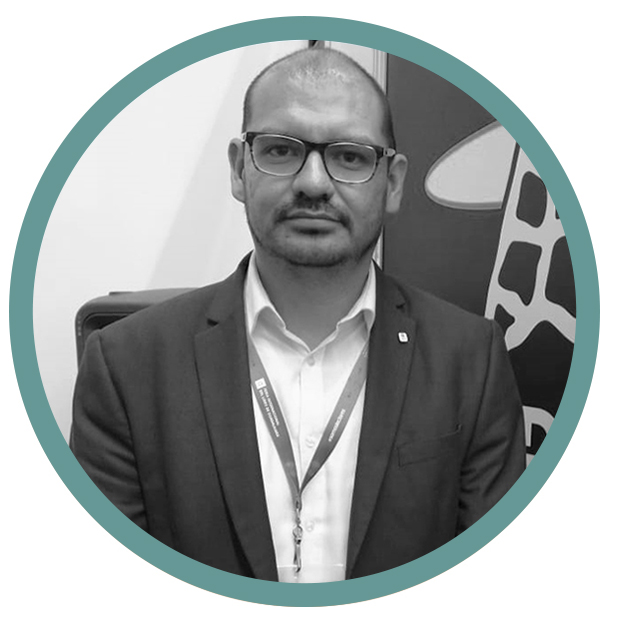By Miguel Ramírez, head of operations of the ICRC in Mexico
Diana Gutiérrez’s mother Adulfa is 81 years old and disappeared on 13 September 2016 in the State of Mexico. Her daughter and other relatives have been searching for her ever since. They treasure their memories of Adulfa and remember her as a loving woman who enjoyed a cup of coffee and a good film.
It is very hard for the relatives of missing people, says Nailea Carreño, from Guanajuato, who is looking for her sister Sharon, who disappeared on 21 June 2020. Before she disappeared, Sharon would come home and go straight to bed with her dinner. “I used to find that annoying, but now I miss it,” admits Nailea, whose daily routine is now focused around getting involved in search parties and praying that her sister will be found.
In Mexico, the scourge of violence is ever-present, complex and constantly changing. The number of violent deaths in Mexico is at a critical level, with 23 homicides per 100,000 inhabitants in 2023, according to calculations based on official data. Violence breaks down the fabric of society, leaving a trail of missing people, unmarked graves, forced migration, broken families, mental health problems and more. It restricts mobility and access to basic services such as education and health.
At the same time, Mexico, like many other countries, is experiencing a rapidly changing political and social scene. Diana and Nailea, and thousands of others like them, are witnesses to the fact that despite the changes, violence is still affecting many lives and is evidently at a critical level. Regardless of the circumstances, these people need our help.
The work of aid agencies is constantly evolving. International aid budgets are likely to shrink in the coming years, so in 2023 the ICRC implemented global measures designed to adjust to this while ensuring its work is still as effective as possible. These measures have meant significant challenges, both globally and in Mexico, where we are seeking to alleviate the consequences of violence and provide help and protection to those affected by it, including to the relatives of missing people, migrants, communities and people deprived of their liberty.
However, our work never stops, and thanks to the adaptability of ICRC humanitarian staff in the country, we are continuing to find creative and innovative ways of dealing with internal change, the changing face of violence, and movement within the country’s institutions.
The ICRC believes that innovation means being flexible. We must adapt and improve, meet new needs, anticipate challenges and support national institutions. To respond effectively, we are constantly implementing new solutions in key areas, whether it be adopting new technology, creating adapted products or restructuring processes. We also explore innovative collaboration and referral mechanisms, proposing ways we can gradually improve or laying the groundwork for broader initiatives such as digitization and data management.
Our innovation is reflected in technological solutions such as the Resolve platform, which helps the country use scientific methods to identify people, and RedSafe, which provides migrants with timely, useful and accurate information on how to prevent and mitigate the risks they face along their journey and on how to access essential services in Mexico and Central America.
Innovation is also evident in collaboration mechanisms and face-to-face meetings to support people affected by violence. Such meetings might take the form of dialogue with the authorities, or workshops on forensic identification for people searching for a loved one that equip them with tools to support them in their search.
It’s important to keep on studying, because technology is constantly changing, and we need to make sure our searches are more than just superficial. What we learn at these classes is very important
one workshop participant commented.
In 2023, the ICRC held an in-person and virtual International Conference for Families of Missing Persons. This event brought together 700 people from over 50 countries in 44 locations to exchange ideas, challenges and lessons learned in their searches, raise awareness, learn strategies for coping with the emotional strain of the situation and commemorate their loved ones. This network of solidarity has been a great tool in inspiring and supporting the relatives of missing people.
There are no limits and no borders, nor should there be for missing people, because we’re all working together towards finding these people (…) We’re not authorities, but we can lend our support (…) Here, we’re in the spotlight, we’re not invisible
Diana commented at the 2023 conference. For her part, Nailea shared her admiration for the persistence shown by relatives of missing people all over the world.
In 2023, we continued to protect migrants by conducting confidential bilateral dialogues with authorities and supporting institutions and shelters. We worked hard to provide migrants with useful information to help protect them against risks along the route, and we referred people to institutions working to protect them, respect them and keep them safe. One example is that of the Morales family, who are asylum seekers in Mexico. The family found themselves homeless in a southern city. They had no idea where to turn and appeared to be malnourished. Our team provided the family with information about aid services so that they could make informed decisions, and helped them move into a safe shelter where they could stay together.
Amid the complex reality facing Mexico, the stories of Adulfa, Diana, Sharon, Nailea, the Morales family and so many others reflect just some of the profound damage that violence has on our communities.
Despite the challenges and constraints, the ICRC continues to be committed to supporting these people, and is constantly innovating and adapting so that it can provide support and protection to those who need it most. Our commitment is clear: no matter what changes in the country, or how bad the violence gets, we will continue to work to alleviate human suffering.
We acknowledge Source link for the information.



